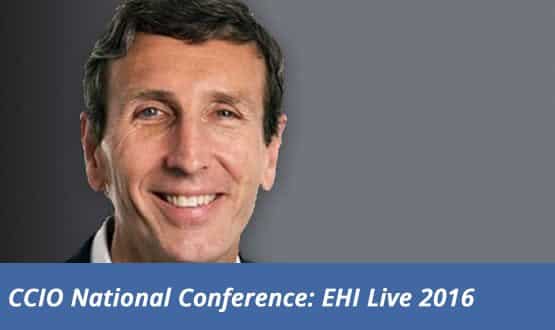Everybody will benefit from exemplars – McNeil
- 2 November 2016

The NHS' chief clinical information officer has launched a spirited defence of the controversial exemplars programme.
Keith McNeil, speaking at EHI Live today, said there were “no losers” in the selection of 12 centres of global digital excellence, and that “everybody will gain”.
The exemplars programme followed the launch of US ‘digital doctor’ Professor Robert Wachter’s review of NHS IT.
Wachter advised that trusts should be split into three groups, with central money directed towards so-called Group A and B trusts, to become global and local leaders.
In response, health secretary Jeremy Hunt announced that 12 digitally advanced acute trusts had been chosen to access a £100 million funding pot, out of a shortlist of 27 invited to apply.
The move has raised questions about why only acute trusts were included, and what will happen to Group C trusts – the majority – that are not selected for the programme.
“When we invest money in them [the 12 trusts], and there’s only a limited amount”, McNeil elaborated. “We’re going to get a good return from our investment.”
Yesterday, Will Smart, the NHS chief information officer, said that a further round of ‘national’ exemplars will include mental health, community, specialist and ambulance trusts.
The first 12 exemplars were selected based on a “clearly articulated strategic and clinical vision,” he added. They were trusts that had “thought deeply about what their agenda was and how they were going to deliver it.”
McNeil told the Annual CCIO Conference co-located alongside EHI Live at the NEC in Birmingham that he was “actively engaging in mental health right now.”
However, he said picking mental health exemplars was complicated, as worldwide “there is no good definition on what a mental health exemplar looks like.”
McNeil was appointed to his present job in the summer. Since his appointment, he has also been announced as chair of the National Information Board and a new Digital Delivery Board.
Speaking to the conference in this capacity, he said a focus of their work would be making more effective use of NHS data.
He said companies such as Uber and AirBnB provided a “great paradigm for us” in how they collect, aggregate and analyse data. “Let’s model ourselves on these hugely successful organisations,” McNeil said.
While Uber and AirBnB are interesting tech companies, their operating model is increasingly controversial. Dan Sheldon, digital strategy lead at the Department of Health, struck a slightly different note when he presented at a King’s Fund event this month.
Sheldon said the revamped NHS.uk website will allow the NHS to dictate if and how it is “going to get Ubered”, because it will allow it to decide which disruptive services to develop and bring in-house.
“If we’re not careful, the standards will have been set without the NHS having been part of the conversation about the standards of personal health records”, he added.
In another section of a wide-ranging speech, McNeil echoed the comments of Beverley Bryant, NHS Digital’s director of digital transformation on the importance of improving market conditions to make it easier for businesses to sell technology into the NHS. “Open systems up,” he said. “Let innovators come in and join the party.”




